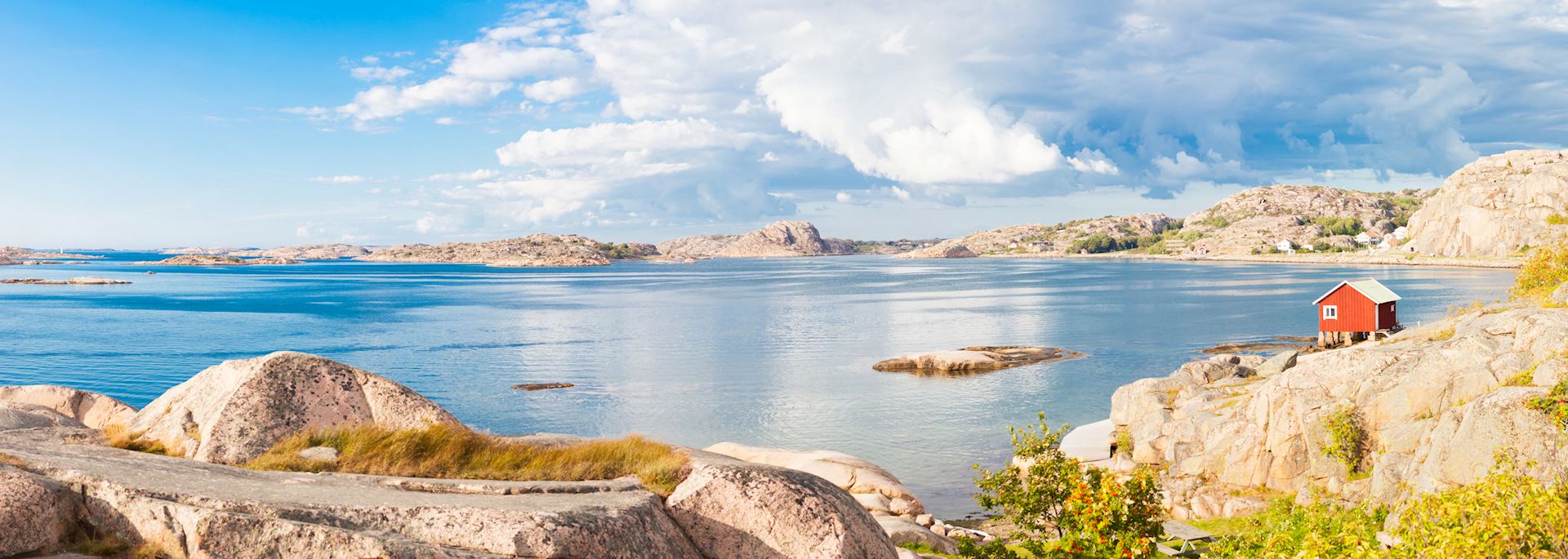Practical Information
Planning your trip
A large country with many islands, Sweden is nonetheless smooth to navigate thanks to a robust infrastructure. But, to help you make the most of your time there, your specialist will draw on their first-hand experience to advise you on the practical elements of your trip. They can arrange everything from walking tours to transport to finding the right hotel for you. We work closely with local partners to keep up to date with developments in the country, and we visit regularly ourselves.
Language
The country’s official language is Swedish, which has several regional dialects. In the north, a number of indigenous Sámi languages are still spoken today by around half of the Swedish Sámi population. However, Swedes are generally fluent English speakers and you’re not likely to encounter any issues being understood anywhere in the country.
Food & drink
Swedish cuisine is known primarily for meatballs, pickled herring and cinnamon buns. However, in recent decades, the country has contributed to the blossoming of Scandinavia’s culinary scene, which focuses on local, seasonal and organic produce.
In Stockholm, Gothenburg and Malmö, you’ll find a host of Michelin-starred eateries that reflect the cities’ cosmopolitan nature. Coastal regions excel in wild salmon, herring and trout, often served alongside rye bread, foraged vegetables and lingonberry jam. This is often part of a smörgåsbord; an open sandwich served buffet-style with a number of different hot and cold accompaniments.
Perhaps the most essential Swedish culinary tradition is fika. Though it’s often translated as 'coffee and a cake', fika is more like a way of life and an essential part of the culture. What you eat or drink is largely irrelevant — more important is the companionship and taking time to slow down to connect. You’ll see people in cafés and coffee shops pausing for fika, usually in the mid-morning and mid-afternoon.
Craft brewing has also become popular in Sweden in recent years (and indeed across the entire Nordic world), as has viticulture, particularly in the southern states near Malmö.
Festivals & public holidays
Many of Sweden’s public holidays follow the Christian calendar, but many also embody uniquely Scandinavian traditions. Perhaps the most accessible is Midsummer’s Day, which is celebrated on the Friday closest to the summer solstice with flower crowns, maypoles, dancing, singing and generous helpings of aquavit. Visitors can join in at public parks.
The Swedish calendar is also packed with festivals and cultural events, from Taste of Stockholm and Archipelago Boat Day in June to the Stockholm Jazz Festival in October.
- 1st January – New Year's Day
- 6th January – Epiphany
- March/April – Good Friday (date varies)
- March/April – Easter Sunday (date varies)
- March/April – Easter Monday (date varies)
- 1st May – May Day
- 13th May – Ascension Day
- 23rd May – Whit Sunday
- 6th June – National Day
- Late June – Midsummer’s Day
- 6th November – All Saints' Day
- 25th December – Christmas Day
- 26th December – Second day of Christmas
Tipping
Sweden's currency is the Krona (kr). You can easily exchange common currencies at banks, which are plentiful across Sweden, as are ATMs. Credit and debit cards are readily accepted by nearly all Swedish businesses, even for small purchases, and are considered the most convenient means of payment. A chip and pin system is used for debit and credit card transactions.
Tipping culture is relatively modest in Sweden, and you'd usually only tip your driver, your guide and staff at restaurants. A discretionary service charge is nearly always added to your restaurant bill, and you don’t need to tip over and above this. If a service charge isn’t added, rounding up the bill or adding 5% to 10 % is acceptable, but not expected.
If you’d like to tip your driver, we recommend about 50 kr an hour. For a tour guide, we recommend tipping 200 kr for a half-day tour per couple/family and 400 kr for a full day. If you were particularly impressed with the service, it’s acceptable to tip more.
Communications
The code for calling Sweden is +46, followed by a varying number of digits, depending on location. Non-EU visitors can purchase a SIM card at their arrival airport (50 – 100 kr). Most densely populated areas receive at least GPRS signals, if not 3G or 4G, although you may not find any signal in more rural or mountainous areas. While it’s possible to phone home directly from your hotels, these calls can be expensive. Many hotels, restaurants, and cafés will have complimentary Wi-Fi.
Travel Advice
Our country specialists can advise on any safety concerns you may have. For current information, please refer to the Foreign, Commonwealth & Development Office website.
When to go to Sweden
You'll find temperature and rainfall information, together with a month-by-month guide on visiting, on our guide for when to go to Sweden.
More Information
-
Flight Time
2 hours 30 minutes (London to Stockholm) -
Time Zone
UTC +1


